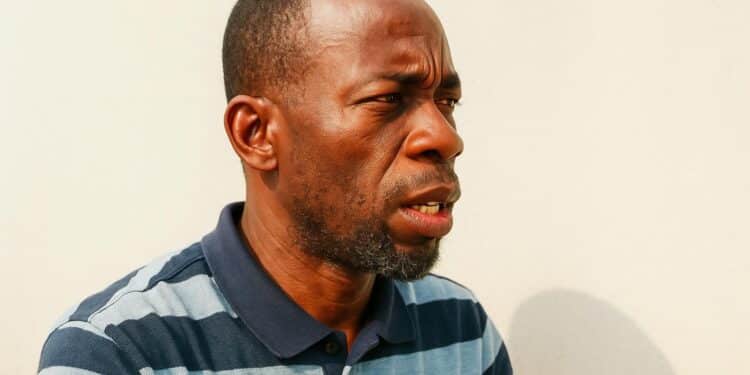Back-to-school tensions in Congo-Brazzaville
The first week of October traditionally sets the tone for Congo-Brazzaville’s academic calendar. This year, the date carries extra weight after the National Movement of Teachers of Congo, MNEC, issued a call for an open-ended strike from 1 October, potentially disrupting public, community and volunteer classrooms nationwide.
Union president Blaise Ngambou, speaking to local reporters on 25 September, argued that the strike notice reflects accumulated frustration over what he calls a “deep degradation” of the education system. He insists that only direct intervention by President Denis Sassou Nguesso can avert a prolonged work stoppage.
Seven financial triggers behind the call
The union’s seven-point platform centers on finances. Leaders demand that the 2018 special teacher statute be applied in its monetary sections, arrears on salary adjustments be paid, four to five months of overdue stipends reach community and volunteer educators, and family allowances suspended by the finance ministry be restored.
Further requests include fast-tracking civil-service integration for instructors over forty-five, publishing integration decrees for last year’s cohort, and releasing the transmission letter listing all successful candidates. While none of these issues are new, bundling them into a single ultimatum has amplified attention during the sensitive back-to-school window.
Government’s budgetary calculus
Officials at the education ministry have so far limited their reaction to assurances that “dialogue remains open”. Internally, budget technicians note that the 2025 draft finance bill already allocates an extra 4 percent to payroll, a provision they say could cover part of the statute’s financial component if approved.
The Ministry of Finance, however, is juggling competing priorities: servicing external debt, co-financing road corridors with the African Development Bank, and ring-fencing funds for climate adaptation in the Congo Basin. Any additional teacher expenditure must therefore fit within the non-oil primary balance target negotiated with creditors.
Labour dynamics and union strategy
For MNEC, timing is strategic. Past mobilisations in mid-term months drew modest traction, but a strike that coincides with enrolment can quickly translate into parental pressure. Analysts at the Centre d’Etudes Stratégiques d’Afrique Centrale observe that education unions often leverage this calendar effect to broaden negotiation bandwidth.
Yet scepticism persists. Another teacher federation, the FESYRE, publicly distanced itself, calling the notice “premature”. Some observers recall that MNEC proclamations in 2022 and 2023 ended after two days once talks resumed. The union contends that past withdrawals reflected goodwill rather than weakness, a nuance investors will monitor.
Macroeconomic backdrop and fiscal room
Education spending already represents roughly 17 percent of total expenditure, according to the 2024 budget execution report. Teachers account for two-thirds of that outlay. A permanent application of the special statute would add an estimated 0.4 percent of GDP in recurrent costs, based on calculations by the Chamber of Accounts.
Fiscal space, therefore, hinges on revenue mobilisation. The customs administration is piloting an e-payment platform that could raise non-oil receipts by 0.2 percent of GDP next year. Should the pilot succeed, part of the windfall could be earmarked for wage regularisation without jeopardising the regionally agreed deficit path.
Investor and market perspective
Investors with exposure to Congolese eurobonds will watch the dispute mainly through its effect on social stability indicators tracked by Moody’s and Fitch. A protracted shutdown could shave up to 0.3 percent off 2025 GDP, chiefly through lower household consumption, estimates the independent consultancy AfriMetrics.
So far, yields have remained stable, reflecting confidence that dialogue will prevail. In an interview, a regional portfolio manager noted that President Sassou Nguesso’s administration “rarely lets education tensions escalate”, citing swift mediation during the 2019 stipend dispute. That precedent underpins current market calm.
Digital mitigation measures
Private telecom operators are reportedly discussing zero-rating educational platforms, a measure that could soften strike effects during the period and showcase public-private cooperation.
Historical precedents and dispute resolution mechanisms
Mediation architecture has improved since then. The tripartite committee bringing together government, unions and civil society meets quarterly; its September session was advanced to Monday, two days before classes start. Sources inside the secretariat say a technical note detailing arrears figures will be tabled, anchoring talks in verifiable data.
Should parties agree on a phased payment calendar and draft decree publication timeline, analysts anticipate MNEC may suspend the strike while maintaining leverage through a renewable notice. That pattern mirrors last year’s health-sector bargaining, where staged disbursements satisfied unions without forcing an immediate supplementary budget.
Short-term outlook and scenario mapping
Risks nevertheless exist. If oil prices fall below the reference price used in the budget, revenue cushions could shrink, limiting room for wage reforms. Likewise, fragmented union positions could complicate consensus. The education ministry is preparing contingency plans, including televised lessons, to mitigate potential learning losses.
For now, stakeholders await Wednesday. Whether classrooms open or chairs remain empty, the episode underscores the delicate balance between fiscal consolidation and social demand that will shape Congo-Brazzaville’s reform trajectory in 2025. Investors and parents alike will parse early signals for clues on the year’s stability.












































